- New Sailboats
- Sailboats 21-30ft
- Sailboats 31-35ft
- Sailboats 36-40ft
- Sailboats Over 40ft
- Sailboats Under 21feet
- used_sailboats
- Apps and Computer Programs
- Communications
- Fishfinders
- Handheld Electronics
- Plotters MFDS Rradar
- Wind, Speed & Depth Instruments
- Anchoring Mooring
- Running Rigging
- Sails Canvas
- Standing Rigging
- Diesel Engines
- Off Grid Energy
- Cleaning Waxing
- DIY Projects
- Repair, Tools & Materials
- Spare Parts
- Tools & Gadgets
- Cabin Comfort
- Ventilation
- Footwear Apparel
- Foul Weather Gear
- Mailport & PS Advisor
- Inside Practical Sailor Blog
- Activate My Web Access
- Reset Password
- Customer Service

- Free Newsletter


Catalina 42 Mk I and Mk II
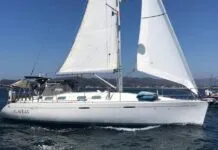
Beneteau First 42s7 Used Boat Review
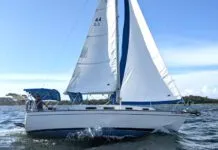
Pearson 303 Used Boat Review

Grampian 26 Used Boat Review
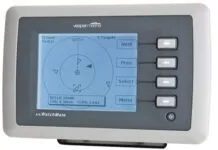
Vesper Marine WatchMate 850 and Icom M91D: Where Credit is Due
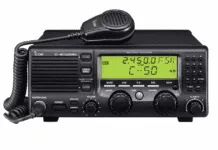
How to Create a Bullet-Proof VHF/SSB Backup
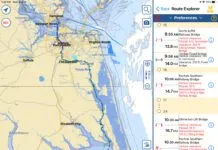
Tips From A First “Sail” on the ICW
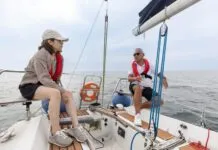
Tillerpilot Tips and Safety Cautions
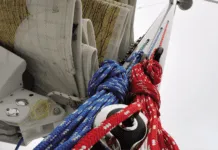
Bulletproof Splice for Reeving New Halyards
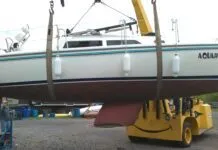
Haul Out Tips to Avoid Confusion and Delays
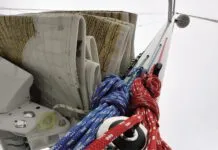
Checking Rope Strength
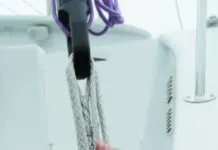
Lashing for Strength
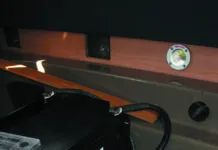
Ensuring a Safe Space for Batteries
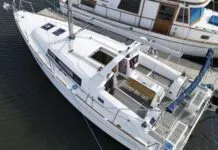
Impact of Modern, Triangular-Design on Boat Performance
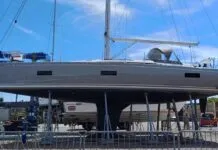
Keel and Rudder Design Basics

Diesel-Electric Hybrids Vs. Electric: Sailing’s Auxiliary Power Future
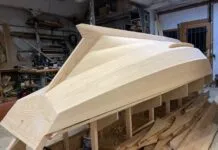
Wooden Boat Revival: Can Boatbuilding Be Regenerative?
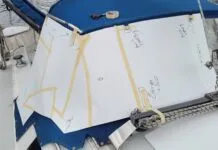
How to Make Dodger Cover Canvas Pattern
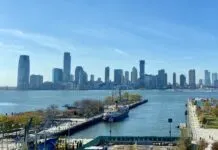
How Much Does It Cost to Keep a Boat on the…
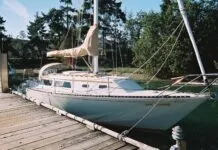
Insurance For Older Sailboats
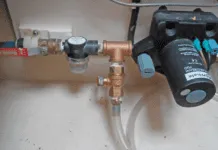
PS Advisor: Acid Cleaning Potable Water Systems
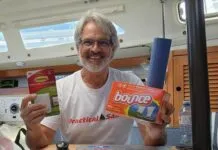
Product Hacks: Velcro, Bounce, Anti-Skid Mats and Pool Lights
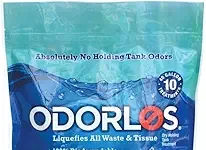
Stopping Holding-tank Odors
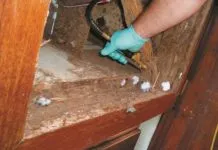
Giving Bugs the Big Goodbye
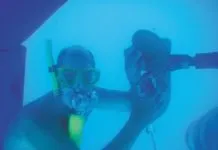
Compact Scuba Kits for Sailors
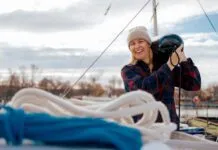
Cold Weather Clothes to Extend the Sailing Season
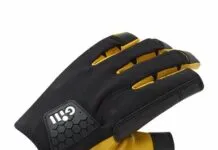
Five Best Gloves: Sailing and DIYing in All Weather
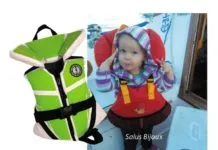
Sailing Gear for Kids

Bilge Pump Installation and Maintenance Tips

Full-Time Ocean Trash Cleanup in the Arctic Circle
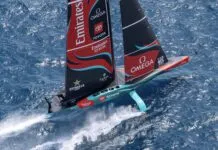
Boats That Fly? How High Tech Rocked the America’s Cup
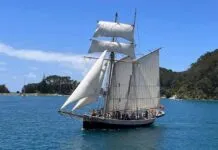
R. Tucker Thompson Tall Ship Youth Voyage

On Watch: This 60-Year-Old Hinckley Pilot 35 is Also a Working…
- Sailboat Reviews
Morgan 38/382
Charlie morgan's hurrah becomes ted brewer's success story becomes today's pseudo-classic..
We receive many requests from readers to review certain boats. Almost without exception, the requests come from owners of the boat suggested. Few boats have been the object of more requests than the venerable Morgan 38. At first blush, it is difficult to determine which Morgan 38 we ought to address, as two distinct designs were built since the first one appeared 22 years ago. After some thought, we decided to trace the history of both as best we could, including also the Morgan 382, 383 and 384.
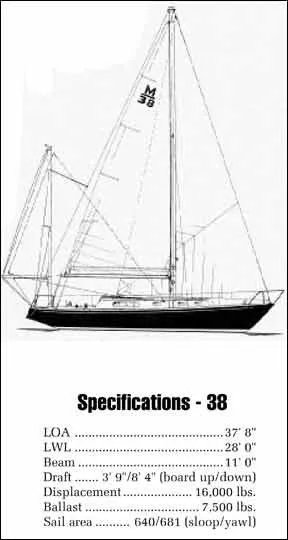
The Morgan 38 was designed in 1969 by Charlie Morgan. He had founded Morgan Yacht Company in St. Petersburg, Florida, in 1965. The Morgan 34 was his first production model. A hometown boy, he had made a name for himself in the 1960 and 1961 Southern Ocean Racing Conference (SORC), winning with a boat of his own design called Paper Tiger . While not a formally trained naval architect, Morgan demonstrated his skill with a variety of designs. Many of these were keel/centerboard models, owing to the shoalness of Florida waters. Seventy-nine were built before production halted in 1971.
In 1977, the Morgan 382 was introduced, designed by Ted Brewer, Jack Corey and the Morgan Design Team. According to Brewer, the boat was loosely based on the Nelson/Marek-designed Morgan 36 IOR One Ton. The most obvious difference between the 38 and 382 was the elimination of the centerboard and the addition of a cruising fin keel (NACA 64 012 foil) with skeg-mounted rudder. They are two completely different designs from two different eras in yacht design.
In 1980, the 382 was given a taller rig and called the 383. About 1983 the boat underwent other subtle changes, now called the Morgan 384. The rudder was enlarged and the interior modified. In its three versions, the Brewer model registered about 500 sales.
The company changed ownership several times during this period. It went public in 1968, was later bought by Beatrice Foods and then Thor Industries. Presently it is owned by Catalina Yachts, who built just 24 38s (three were kits) before discontinuing production in 1986.
The first Morgan 38 was a development of the highly successful 34, which Morgan called a “beamy, keelcenterboard, CCA (Cruising Club of America)-style of yacht. We had a good thing going and didn’t want to deviate; we found little interest in those days in keel boats. Centerboards have their own sorts of problems, but there’s an awful lot of thin water in the world, and safe refuge and quiet anchorages are mostly in shoal water.”
The boat has a long, shoal keel drawing just 3′ 9″ with the board up. The rudder is attached and there is an aperture for the propeller. “Beamy,” in 1969, meant 11 feet. The waterline was fairly short at 28 feet, but the overhangs give the hull a very balanced and pleasing profile. The stern is pure Charlie Morgan—a finely proportioned shape that is neither too big nor too small. In profile, the angle between the stern (which interestingly is a continuation of the line of the backstay) and the counter is nearly 90 degrees. It’s a trademark look.
Sloop and yawl rigs were offered, which was typical of CCA designs. The rig has a lower aspect ratio (the proportion of the hoist to the foot of the mainsail) than later designs, including the Brewer-designed 382. Yet this is a very wholesome rig for cruising. Owners responding to our questionnaire said the boat balances very well.
Owners of the 382 and subsequent permutations seemed less pleased. They didn’t rate balance as highly, noting most frequently the difficulty in tracking (keeping the boat on a straight course) when sailing off the wind (not uncommon with beamy fin keel designs; it’s a trade-off with speed, pointing ability and maneuverability). Others said that they raked their masts forward to improve balance. One thought the problem was caused because the rudder was slightly undersized. Still, these owners liked the way their boats sail.
The rig, of course, isn’t the only difference between the Morgan and Brewer designs. The latter has a foot wider beam—12 feet—and a longer waterline. Two keels were offered, the standard five-foot draft and an optional deep keel of six feet. Displacement jumped a thousand pounds to 17,000 despite a reduction in ballast from 7,500 pounds to 6,600 pounds. Centerboard boats, naturally, require more ballast because it isn’t placed as low as it is in a deep fin keel boat.
The look of the 382 is much more contemporary. The rake of the bow is straighter, as is the counter, which is shorter than the original 38 as well. Freeboard is higher and the windows in the main cabin are squared off for a crisper appearance.
Construction
The hulls of the early 38s were built of solid fiberglass and the decks of sandwich construction. Some 382 hulls were cored, others not. A variety of core materials were used, mostly Airex foam. The lamination schedule was your basic mat and woven roving, with Coremat added as a veil cloth to prevent printthrough.
Both designs have internal lead ballast, sealed on top with fiberglass.
The early 382s did not have the aft bulkhead in the head fiberglassed to the hull, which resulted in the mast pushing the keel down. All boats “work” under load, and bulkheads bonded to the hull are essential to a stiff structure. Anyone who has a boat in which major load-bearing bulkheads are not attached to the hull should do so before going offshore. To its credit, the company launched a major recall program.
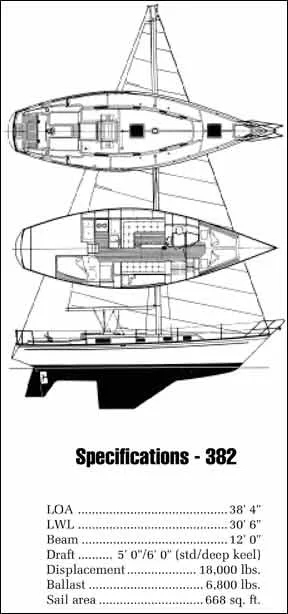
The owners of all Morgan 38s, as a group, note the strength of the boat. One said he hit a rock at 6 ½ knots and suffered only minor damage. Very few problems were mentioned. The owner of a 1981 model, however, said he “drilled through hull at waterline and was surprised at thinness of glass on either side of the Airex: 1/8” inside, 1/16″ outside.” With the stiffness that sandwich construction provides, not as much glass is required; still, protection from collision and abrasion would recommend greater thickness outside. Brewer, incidentally, discounted the report.
Interestingly, Hetron-brand fire-retardant resin was used for a time, prior to 1984; if you recall, this was blamed for the many cases of reported blistering on the early Valiant 40s. About half of the 382 owners responding to our surveys reported some blistering, none serious.
The attached rudder of the early 38 is stronger than the skeg-mounted rudder of later models. But we do prefer the skeg configuration to a spade rudder, at least for cruising. A problem with skegs, however, is the difficulty in attaching them strongly to the hull. One owner said his was damaged in a collision with a humpback whale, but that is hardly normal usage!
Several owners of later models commented that the mast was a “utility pole,” recommending a custom tapered spar for those inclined to bear the expense.
Other problems reported in our survey were only minor and were corrected by the company. In fact, owners were nearly unanimous in their praise for Morgan Yachts’ customer service.
The layout of the Morgan 38 is quite conventional and workable. In both incarnations there are Vberths forward, private head with shower (separate enclosure in the 382), dinette in main cabin with settee, galley aft in the port quarter area and nav station with quarter berth opposite to starboard. Specifications for the first 38s included “attractive wood-grained mica bulkhead paneling, with oiled American walnut trim.” This was a popular treatment in the 1960s, and practical, but often done to excess. By the 1980s, fake teak didn’t play so well. Owners wanted real wood, and that’s what they got in the 382.
Owners of early 38s complained of poor ventilation (“I added six opening ports, and would like an additional center cabin hatch,” wrote one), short Vberths (“Could be 4″ longer, but I’m 6′ 2.””), and more closet space (from a live-aboard).
Owners of later models mentioned the need for a larger forward hatch to get sails through, a hatch over the galley, larger cockpit scuppers, and Dorade vents.
(Teak Dorade boxes were added on the 384.) They complained of not enough footroom in the V-berths and poor location of the main traveler in the cockpit. (The traveler was moved to the cabinhouse top on the 384.)
Despite these minuses, most owners cite the volume of the interior and many stowage compartments as major reasons for their satisfaction with the boat.
Performance Under Sail
As implied in our comments on balance in the “Design” section of this review, the centerboard 38 sailed beautifully. She is dry and seakindly, stable and relatively fast for her generation. Its PHRF rating ranges from 145 to about 150. The yawl rig is probably not as fast as the sloop, but for the cruising couple, the mizzen sail gives the skipper another means of balancing the boat, as well as a means to fly more sail when reaching if he’s prepared to fuss with a staysail.
The 382 rates between 128 and 150, about 137 on average. The Morgan 383 and 384, which are grouped together, rate a mite lower at 135, on average.
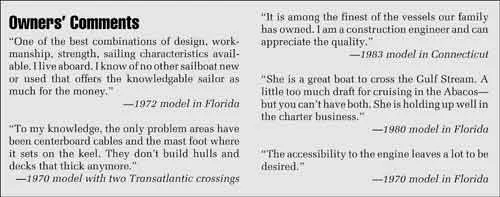
It is not surprising that Brewer’s redesign is faster, even though it’s 1,000-2,000 pounds heavier. This is due to it’s deeper fin and higher aspect rig with the ability to carry larger headsails. There is also less wetted surface. Performance Under Power
The centerboard 38 was powered by the seemingly ageless Atomic Four gasoline engine, though a Perkins 4-107 or Westerbeke 4-107 was available at extra cost ($1,940 in 1969). The early 38s cruise at about 6 ½ knots.
A first-generation Yanmar—the 3QM30—was used on some 382s, and as owners of those engines know, they tend to be noisy and vibrate a great deal. Yanmar engines improved a great deal after the manufacturer redesigned and retooled the entire line. But the most common powerplant was the magnificent 50-horsepower Perkins 4-108. If we were looking for a Morgan 38 to purchase, we’d certainly lean toward one with this engine.
Both designs handle reasonably well under power, as well as most sailboats do, meaning that backing down with a two-blade prop is a necessarily cautious procedure.
A number of owners recommend changing to a three-blade prop, but that will affect sailing performance. One should examine his sailing style closely before making the move.
The Morgan 38, in any incarnation, is a handsome boat that sails well and is built strong enough for most people’s purposes. Some may pause before taking a centerboard boat far offshore, but it has certainly been done—recall, if you will, Carleton Mitchell’s hugely successful racer Finnisterre .
Both centerboard and fin keel versions seem to us to have advantages and disadvantages that are essentially tradeoffs.
On the one hand, we like an attached rudder for cruising, as it provides the best protection from collision with logs and other hard objects. On the other, we recognize the importance of placing ballast low, as in the fin keel version, and we appreciate
Brewer for giving a nice slope to its leading edge so that damage from hitting logs will be minimized. Brewer said that a 382 that passes survey is capable of cruising just about anywhere. “They’ve crossed oceans,” he said.
To our eye, we admit to being fond of the CCA designs with low freeboard and graceful sheer lines. The yawl is a versatile rig that is especially attractive, though it does require more in the way of tuning and maintenance.
An early Morgan 38, in good condition, should sell in the high 20s. Expect to pay a thousand or so more for the yawl. For sellers, considering that in 1969 the base price of the boat was $22,995, that’s not a bad return on investment.
Fifteen years later the price had jumped to $84,995 (1984 model). Those boats today are advertised in the mid to high 60s, and occasionally the low 70s. (What anyone is actually getting for these days is another matter entirely).
Considering the changes in the economy, that’s still not bad performance. What it means most to the prospective buyer is that the Morgan 38 and 382 are popular, much admired boats that should, we expect, hold their value as well as or better than most others.
RELATED ARTICLES MORE FROM AUTHOR
My husband & I bought a 382 Morgan in 1980. Named her Galewynd. We enjoyed her til we sold in 2000
My husband & I bought a 382 in 1980. We named her Galewynd. We enjoyed her til we sold in 2000
LEAVE A REPLY Cancel reply
Log in to leave a comment
Latest Videos
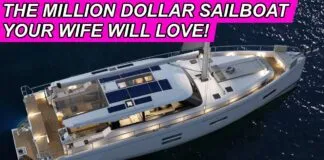
The SHOCKINGLY Comfortable Million Dollar Sailboat From Moody

New Sailor CRASHES and Needs Advice!

The 50 Foot Carbon Fiber Catamaran From Carbon Ocean Yachts

How To Get Sailboat Insurance
Latest sailboat review.
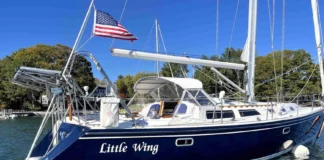
- Privacy Policy
- Do Not Sell My Personal Information
- Online Account Activation
- Privacy Manager

- Search forums
Follow along with the video below to see how to install our site as a web app on your home screen.
Note: This feature currently requires accessing the site using the built-in Safari browser.
- Welcome to this website/forum for people interested in the Morgan 38 Sailboat . Many of our members are 'owners' of Morgan 38s, but you don't need to be an owner to Register/Join.
- Morgan Community
- Morgan 38 Background, History, Reference

A Brief History of Morgan 38 Sailboats
- Thread starter mpearson
- Start date Apr 3, 2015
Mark Pearson
- Apr 3, 2015
- Charley Morgan 38 - 80 built between 1969 and 1971. Designed by Charley Morgan .
- Morgan 382 - Ted Brewer design, ~300 built between 1977 and 1981
- Morgan 383 - Taller mast, bigger rudder, traveler on deck, ~100 built 1982-1983
- Morgan 384 - Slight modifications mostly cosmetic, ~100 built 1983-1984
- Catalina/Morgan 38 - Different design, built by Catalina Yachts after they acquired Morgan Yachts, Center Cockpit, ~60 built in 1990s.
- Feb 15, 2022
What model 38 ft was built in 1976 with aft cockpit ?
Attachments

- Mar 11, 2022
Update I was given wrong info I’ve since figured it out thanks to this awesome site , I can’t get enough of it I’ve been reading all comments and have answered all of my questions and I’ve learned plenty thanks again
- This site uses cookies to help personalise content, tailor your experience and to keep you logged in if you register. By continuing to use this site, you are consenting to our use of cookies. Accept Learn more…
Great choice! Your favorites are temporarily saved for this session. Sign in to save them permanently, access them on any device, and receive relevant alerts.
- Sailboat Guide
Morgan 38 is a 37 ′ 7 ″ / 11.5 m monohull sailboat designed by Charles Morgan and built by Morgan Yachts between 1969 and 1971.

Rig and Sails
Auxilary power, accomodations, calculations.
The theoretical maximum speed that a displacement hull can move efficiently through the water is determined by it's waterline length and displacement. It may be unable to reach this speed if the boat is underpowered or heavily loaded, though it may exceed this speed given enough power. Read more.
Classic hull speed formula:
Hull Speed = 1.34 x √LWL
Max Speed/Length ratio = 8.26 ÷ Displacement/Length ratio .311 Hull Speed = Max Speed/Length ratio x √LWL
Sail Area / Displacement Ratio
A measure of the power of the sails relative to the weight of the boat. The higher the number, the higher the performance, but the harder the boat will be to handle. This ratio is a "non-dimensional" value that facilitates comparisons between boats of different types and sizes. Read more.
SA/D = SA ÷ (D ÷ 64) 2/3
- SA : Sail area in square feet, derived by adding the mainsail area to 100% of the foretriangle area (the lateral area above the deck between the mast and the forestay).
- D : Displacement in pounds.
Ballast / Displacement Ratio
A measure of the stability of a boat's hull that suggests how well a monohull will stand up to its sails. The ballast displacement ratio indicates how much of the weight of a boat is placed for maximum stability against capsizing and is an indicator of stiffness and resistance to capsize.
Ballast / Displacement * 100
Displacement / Length Ratio
A measure of the weight of the boat relative to it's length at the waterline. The higher a boat’s D/L ratio, the more easily it will carry a load and the more comfortable its motion will be. The lower a boat's ratio is, the less power it takes to drive the boat to its nominal hull speed or beyond. Read more.
D/L = (D ÷ 2240) ÷ (0.01 x LWL)³
- D: Displacement of the boat in pounds.
- LWL: Waterline length in feet
Comfort Ratio
This ratio assess how quickly and abruptly a boat’s hull reacts to waves in a significant seaway, these being the elements of a boat’s motion most likely to cause seasickness. Read more.
Comfort ratio = D ÷ (.65 x (.7 LWL + .3 LOA) x Beam 1.33 )
- D: Displacement of the boat in pounds
- LOA: Length overall in feet
- Beam: Width of boat at the widest point in feet
Capsize Screening Formula
This formula attempts to indicate whether a given boat might be too wide and light to readily right itself after being overturned in extreme conditions. Read more.
CSV = Beam ÷ ³√(D / 64)
Available as sloop or yawl. Not to be confused with a later series of Morgan 38 footers (introduced in 1978?).
Embed this page on your own website by copying and pasting this code.
- About Sailboat Guide
©2024 Sea Time Tech, LLC
This site is protected by reCAPTCHA and the Google Privacy Policy and Terms of Service apply.
JavaScript seem to be disabled in your browser.
You must have JavaScript enabled in your browser to utilize the functionality of this website.
Edwards Yacht Sales

- 866.365.0706
1988 Morgan 384 Very Clean
- Punta Gorda, FL, US
Yacht price

- Email Broker
- Call Broker

Specifications
Descriptions, basic information, dimensions & weight.
- View Option

Presented by
Leo thibault 4 listing(s).

- 941.504.6754 727.449.8222
- View Profile
Manufacturer
Length Range Length Range
Year Range Year Range
Price Range Price Range
QUICK SEARCH BY:
Buyer services, featured yacht.

1985 Morgan 31 Off Shore Fishing Cuddy

2019 Monachus Issa 45

2008 Sea Ray 47 Sedan Bridge

2002 Linssen 470 Grand Sturdy

2009 American Tug 34

2007 Meridian 391 Sedan

1985 Ocean Yachts 55 Super Sport

2005 Island Packet 485

1996 Tiara Yachts 3500 Express

1987 Grand Banks 42 Classic

1981 Hatteras 48 Motor Yacht

2005 Leopard 47

2021 Boston Whaler 285 Conquest

2000 Manta 42
- Google Plus
- Boats For Sale
- Brokerage Services
- Sold Yachts
Whether you are buying or selling your next boat or your first boat, one of Edwards Yacht Sales 45+ Professional Yacht Brokers throughout the Southeast are here to assist. Since 2003 we have acted as our clients trusted advisor throughout the entire process from shopping, to making an offer, to sea trial and survey, to closing.
Corporate Office: 510 Brookside Drive Clearwater, FL 33764
Email: [email protected]
Phone: 727.449.8222 Toll Free: 866.365.0706 Fax: 727.298.0456
Copyright © 2024 Edwards Yacht Sales Do Not Sell My Personal Information Powered by YachtCloser

We have placed cookies on your device to help make this website better.
You can use this tool to change your cookie settings. Otherwise, we’ll assume you’re OK to continue.
Some of the cookies we use are essential for the site to work.
We also use some non-essential cookies to collect information for making reports and to help us improve the site. The cookies collect information in an anonymous form.
To control third party cookies, you can also adjust your browser settings .
- Seller Market Analysis
- Trade Your Yacht
- Sold Yachts
- We Buy Boats
- Exclusive Listings
- Yachts for Sale
- Luxury Yacht Shipyards
- Nautor Swan Yachts
- Sichterman Yachts
- Luxury Yacht Charters
- Search Charter Yachts
- Charter Management
- Luxury Events
- Team Members
- 26 North Events
- Boat Show Events
- North Report Magazine
- Testimonials
- +1.954.900.9988
38′ Morgan 384 | 38' 1985 Morgan

Listed at $69,900
Interested in this yacht contact us.
I agree to receive marketing emails from 26 North Yachts. I understand I can unsubscribe at any time.
I understand that by signing up I agree with 26 North’s Privacy Policy .
Available for Sale 38′ Morgan 384 38' 1985 Morgan
Description
Ted Brewer designed the Morgan 384 with a distinct blend of elegance and practicality, reflecting classic design elements like a teardrop-shaped hull, wide beam, and long overhangs that might evoke a vintage racing boat. However, this model was crafted for cruising, offering a predictable and comfortable motion under sail, a responsive helm, and a stiff, fast performance that excels at cutting through chop and pointing high, making it a reliable companion for serious sailors.
This particular Morgan 384 has been lovingly cared for by her current owner for nearly 20 years, including the addition of a New Beta Marine 50HP diesel, with only 126 hours, newer sails and rigging (including standing rigging), new portlights, and so much more! If you're looking for a solid and well respected bluewater cruiser that has been thoughtfully updated, this is the boat for you!
26 North Yachts is pleased to assist you in the purchase of this vessel. This boat is centrally listed by Annapolis Sailyard. It is offered as a convenience by this broker/dealer to its clients and is not intended to convey direct representation of a particular vessel
Specifications
| LOA: | 38' (12 m) |
| Beam: | 10' (4 m) |
| Hull Material: | Fiberglass |
| Fuel Capacity: | 150 gal (568 L) |
| Fresh Water Capacity: | 90 gal (341 L) |
| Holding Tank: | 15 gal (57 L) |
| Location: | Baltimore, Maryland, United States |
| Build Year: | 1985 |
| Builder: | Morgan |
| Model: | 384 |
| Type: | Cruisers |

Large salon with L-shaped dinette to port and straight settee to starboard
Dining table with drop down leaves
Lots of light and ventilation from the several opening hatches, portlights and (4) dorade vents Private cabin forward with a v-berth. Captains quarter berth aft
Large head with separate shower. New Jabsco shower pump
Custom fitted bedding for berths
Galley to port with lots of storage, a gimbaled propane stove/oven, large sinks with pressurized water, and refrigeration
Nav station to starboard
Deck and Hull
Hull construction: Airex foam core sandwiched between fiberglass, with solid fiberglass below the waterline Deck construction: end cut balsa core sandwiched between fiberglass
Fin keel with skeg hung rudder
The rudder on the 384 has been slightly enlarged from previous models, resulting in better handling and balance
New bottom paint
New life lines with pelican hooks
New New Found Metals portlights
Custom canvas winter boat cover (three piece)
Teak on deck has been refinished, with custom canvas covers for protection
Custom Sapale wood cockpit table with folding leaves
Custom teak drink holders
Bimini / Dodger (done by Charm City Canvas)
Improved ventilation from (4) dorades with cowl vents
Switlik life raft (needs recertification)
Yellow horseshoe life sling
Sails and Rigging
Mainsail (about 10 years old; hardly used)
Mainsail (original; backup)
150% genoa roller furling (about 10 years old; in good shape)
150% genoa (original; backup)
Solent stay to be used for a smaller hank on storm jib in heavy weather
100% hank on Jib sail
Storm Jib (original, but serviceable)
Storm Trysail (original but serviceable)
Asymmetrical spinnaker w/ snuffer
Whisker pole
Jiffy Reef system
Lazy Jack system
Mast tabernacle so you can lean mast forward to get under lower bridges
Standing rigging replaced about 7 years ago
Running rigging replaced about 7 years ago
Mid boom sheeting
Traveler moved out of the cockpit (as seen in previous Morgan 38 models) and onto the cabin top The 384 has a taller rig and shorter boom than previous models, improving the sailing characteristics (4) Lewmar self tailing winches for mainsail, mainsheet and primary winches
Winches serviced
Upgraded primary winches
Garmin chart plotter with NAV pod
Garmin VHF Radio
Garmin handheld VHF
Garmin Radar
Garmin below deck Auto Pilot
Garmin AIS (transmit and receive)
Ray Marine tridata (wind/speed/depth)
Bay Breeze wind generator
(1) start battery / (4) AGM house batteries
Engine and Mechanical
Newer Beta Marine 50HP engine w/ only 126 Hours
Upgraded from the original 35HP Perkins
New engine mounts
Mew prop and shaft
New cutlass bearing
New dripless packing gland
t (2) Fuel tanks - 40 gallon primary and 35 gallon bladder secondary with transfer switch. 75 gallons between the two
(2) Water tanks - 55 gallon aft and 45 gallon forward. 95 gallons between the two
(1) Holding tank, 15 gallon
Information & Features
Beta Marine Beta Marine (Engine 1)
Engine Type: Inboard Fuel Type: Diesel Engine Hours: 126
Drive Type: Stern Drive Power: 50 hp
LOA: 38 ft 4 in
Max Bridge Clearance:
LWL: 30 ft 6 in Beam: 12 ft
Ballast: 6,800 lb Displacement: 18,000 lb
Fuel: 2 x 75 gal Fresh Water: 2 x 45 gal Holding: 1 x 15 gal
Hull Shape: Monohull Flag Of Registry: United States
Max Draft: 5 ft
Listing MLS by Yachtr.com
Talk to us Contact Our Team
Welcome aboard!
We have added you to the newsletter.
We have received your information and an agent will get back to you ASAP
Sign up for Yoga On the Docks Tuesdays at 8 AM
We have received your registration. See you on the docks!
The Morgan 38 is a 37.67ft masthead sloop designed by Charles Morgan and built in fiberglass by Morgan Yachts between 1969 and 1971.
75 units have been built..
The Morgan 38 is a heavy sailboat which is a reasonably good performer. It is very stable / stiff and has an excellent righting capability if capsized. It is best suited as a bluewater cruising boat. The fuel capacity is originally small. There is a short water supply range.
See all sailboats built by Morgan Yachts
See all sailboats designed by Charles Morgan
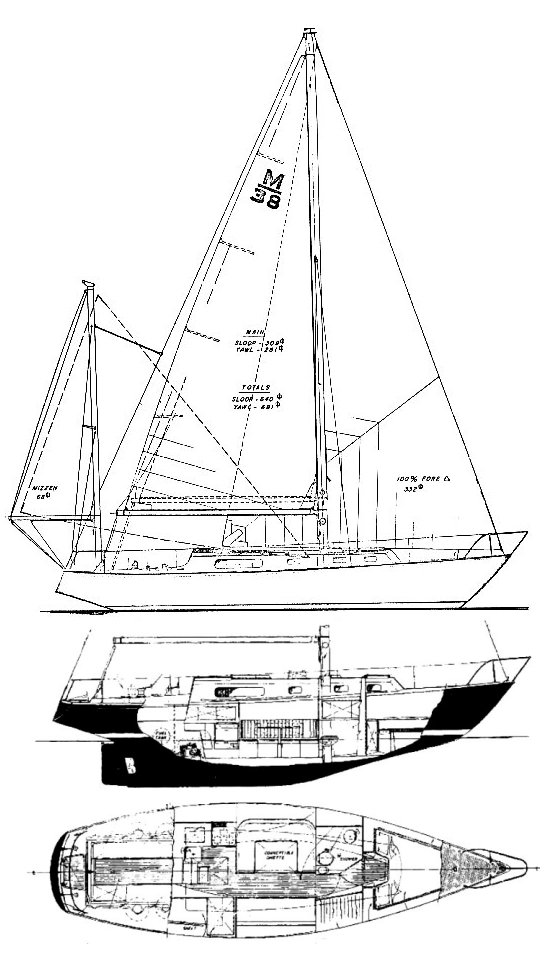
Morgan 38 for sale elsewhere on the web:

Main features
| Model | Morgan 38 | ||
| Length | 37.67 ft | ||
| Beam | 11 ft | ||
| Draft | 3.75 ft | ||
| Country | United states (North America) | ||
| Estimated price | $ 0 | ?? |
Login or register to personnalize this screen.
You will be able to pin external links of your choice.

See how Sailboatlab works in video
| Sail area / displ. | 16.16 | ||
| Ballast / displ. | 46.88 % | ||
| Displ. / length | 325.39 | ||
| Comfort ratio | 32.82 | ||
| Capsize | 1.75 |
| Hull type | Monohull keel with centerboard | ||
| Construction | Fiberglass | ||
| Waterline length | 28 ft | ||
| Maximum draft | 8.33 ft | ||
| Displacement | 16000 lbs | ||
| Ballast | 7500 lbs | ||
| Hull speed | 7.09 knots |
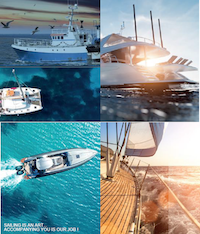
We help you build your own hydraulic steering system - Lecomble & Schmitt
| Rigging | Masthead Sloop | ||
| Sail area (100%) | 639 sq.ft | ||
| Air draft | 0 ft | ?? | |
| Sail area fore | 330.75 sq.ft | ||
| Sail area main | 308 sq.ft | ||
| I | 45 ft | ||
| J | 14.70 ft | ||
| P | 38.50 ft | ||
| E | 16 ft |
| Nb engines | 1 | ||
| Total power | 0 HP | ||
| Fuel capacity | 30 gals |
Accommodations
| Water capacity | 40 gals | ||
| Headroom | 0 ft | ||
| Nb of cabins | 0 | ||
| Nb of berths | 0 | ||
| Nb heads | 0 |
Builder data
| Builder | Morgan Yachts | ||
| Designer | Charles Morgan | ||
| First built | 1969 | ||
| Last built | 1971 | ||
| Number built | 75 |
Modal Title
The content of your modal.
Personalize your sailboat data sheet

COMMENTS
MORGAN 38. Save to Favorites . Beta Marine. BOTH. US IMPERIAL. METRIC. ... 38.50 ft / 11.73 m: E: ... to the bottom of the keel or fin. Like the LWL, it will vary with the weights of fuel, water, stores and equipment. A boat's actual draft is usually somewhat more than the original designed or advertised draft. For boats with adjustable keels ...
Sailboat Reviews; Sailboats 36-40ft; Morgan 38/382 Charlie Morgan's hurrah becomes Ted Brewer's success story becomes today's pseudo-classic. By. Nick Nicholson - Published: June 14, 2000 Updated: January 27, 2022. 2. Facebook. Twitter. Email. Print. We receive many requests from readers to review certain boats. Almost without exception, the ...
Morgan 38 used sailboats for sale by owner. Home. Register & Post. View All Sailboats. Search. Avoid Fraud. ... Charley Morgan 38: Length: 38' Beam: 11' Draft: 4.0' Year: 1971: Type: cruiser: Hull: fiberglass monohull: ... Fort Lauderdale, Florida Asking $69,000. 39.92' Pearson P-40 JR boat Storage Charlotte Harbor Placida, Florida ...
However, the Morgan 38 center cockpit models, today about 20 years old, are still sailing and pleasing cruising couples with their spacious layout and their eye-drawing design. LOA - 38'5″ * Beam - 12'4″ * Draft - 6'6″ or 5'0″ * Displacement - 17,500 lbs. * Sail Area - 700 sq. ft. * Fuel - 50 gal.
There were over 600 Morgan 38 sailboats built between the late 1960s and the 1990s. There are 5 different models as follows: Charley Morgan 38 - 80 built between 1969 and 1971. Designed by Charley Morgan.; Morgan 382 - Ted Brewer design, ~300 built between 1977 and 1981; Morgan 383 - Taller mast, bigger rudder, traveler on deck, ~100 built 1982-1983; Morgan 384 - Slight modifications mostly ...
Very few models of boats have been built for protracted periods without some changes to their form or layout and the Morgan 38 is no exception. Introduced in 1977 as the Morgan 382, minor rig changes resulted in a model name change to Morgan 383 in 1980. In 1983 there were several more changes and again the model name changed to the Morgan 384.
Morgan 38 is a 37′ 7″ / 11.5 m monohull sailboat designed by Charles Morgan and built by Morgan Yachts between 1969 and 1971. Great choice! Your favorites are temporarily saved for this session. Sign in to save them permanently, access them on any device, and receive relevant alerts. ... Morgan 38 is a 37 ...
The Morgan 38 is one of Ted Brewers best designs. These boats have sailed all over the world and are famous for being great sailors. This boat has excellent bright work, gel coat and everything is just right. This is the last 384 ever built! The Morgan 38 was one of the most popular and affordable boats built in the late '70's thru 1988.
Available for Sale 38′ Morgan 384 38' 1985 Morgan Description Ted Brewer designed the Morgan 384 with a distinct blend of elegance and practicality, reflecting classic design elements like a teardrop-shaped hull, wide beam, and long overhangs that might evoke a vintage racing boat.
The Morgan 38 is a 37.67ft masthead sloop designed by Charles Morgan and built in fiberglass by Morgan Yachts between 1969 and 1971. 75 units have been built. The Morgan 38 is a heavy sailboat which is a reasonably good performer. It is very stable / stiff and has an excellent righting capability if capsized.